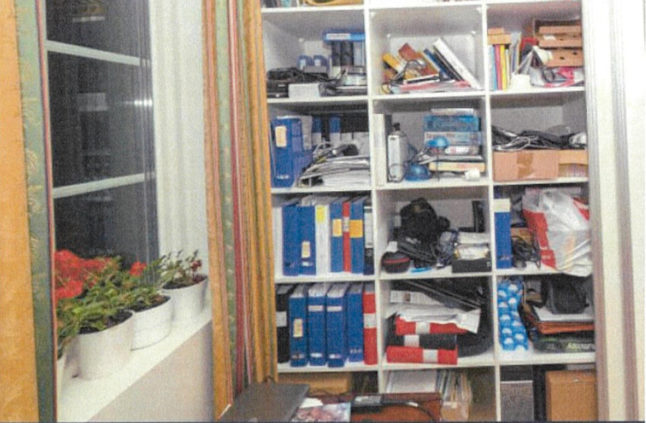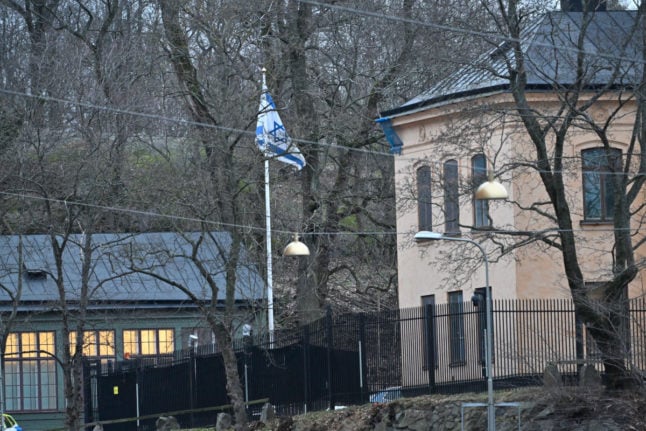Sergei Skvortsov, a 60-year-old dual national, has lived in Sweden since the 1990s where he has run import-export companies.
Clad casually in blue jeans, a shirt and a grey blazer, Skvortsov appeared in a Stockholm district court charged with carrying out “unlawful intelligence activities” against the United States and Sweden over a decade until his arrest in November 2022.
Prosecutor Henrik Olin told the court that Skvortsov and his companies provided a platform for “the Russian military intelligence service GRU and part of the Russian state system” to illegally procure Western technology – mainly electronic devices which were off-limits to Moscow due to international sanctions.
According to experts quoted in Swedish media, the electronics can be used, among other things, in nuclear weapons research.
Skvortsov faces up to four years in prison if found guilty.
His lawyer Ulrika Borg told the court her client, who has been held in detention since his arrest, denies any wrongdoing.
“He is not guilty of anything the prosecutor has alleged,” she said.
Sweden’s charge of “unlawful intelligence activities” is a notch lower than espionage.
Olin argued that Skvortsov was part of a vast Russian organisation built to acquire technology by illicit means.
“There is a system for illegal technology procurement, an organisation that dates back to the Soviet era. It requires agents, nodes, out in the world who can assist the military industry with procurement,” he said.
“Sergei Skvortsov was one of these nodes in a global network,” he told the court.
Olin said Skvortsov’s actions posed “a serious threat” to US and Swedish national security.
Speaking to AFP last week when Skvortsov was charged, Olin said the implications reached even further.
“You only have to look at the battlefield in Ukraine to see that there’s a real need for this from the Russian military industrial complex,” Olin said.
In the indictment, the prosecution accused Skvortsov of gathering “information and the actual acquisition of various items that the Russian state and the defence forces could not acquire on the open market due to export rules and sanctions.”
It accused him of “locating the items requested by the Russian state and the armed forces, negotiating and carrying out the purchase and further organising the transport of the goods while concealing the actual end user.”
Email evidence
Olin told AFP the electronic devices were mainly from the United States.
He said US authorities had prosecuted people in New York in 2016 for providing Russia’s “military complex” with electronic devices, and that US authorities believe Skvortsov took over that role from those individuals.
Among the evidence due to be presented by the prosecution were emails to Skvortsov from the Russian defence ministry, as well as computers, hard drives, USB sticks, mobile phones and documents seized from their home.
An agent from the US Federal Bureau of Investigation was to be called as a witness, alongside colleagues from Sweden’s intelligence services.
Skvortsov and his wife were arrested in a raid on their home in the leafy Stockholm suburb of Nacka, when two Black Hawk helicopters and an elite commando task force swooped down on their house.
His wife was later released and is no longer a suspect.
Sweden is facing several parallel threats to its national security, including from “states and state-like actors”, Prime Minister Ulf Kristersson said in July.
Last week, Justice Minister Gunnar Strommer named Russia as one such country – along with China and Iran – and cited the Skvortsov case as “an expression of how that threat can manifest itself.”
Kristersson said Sweden was in “the most serious security situation since World War Two”, as the country’s Nato membership bid – sought in the wake of Russia’s invasion of Ukraine – remains blocked by Turkey and as the country faces a massive backlash in Muslim nations over a recent spate of Quran burnings.
The trial is expected to last until September 25th, held in part behind closed doors due to national security concerns.



 Please whitelist us to continue reading.
Please whitelist us to continue reading.
Member comments